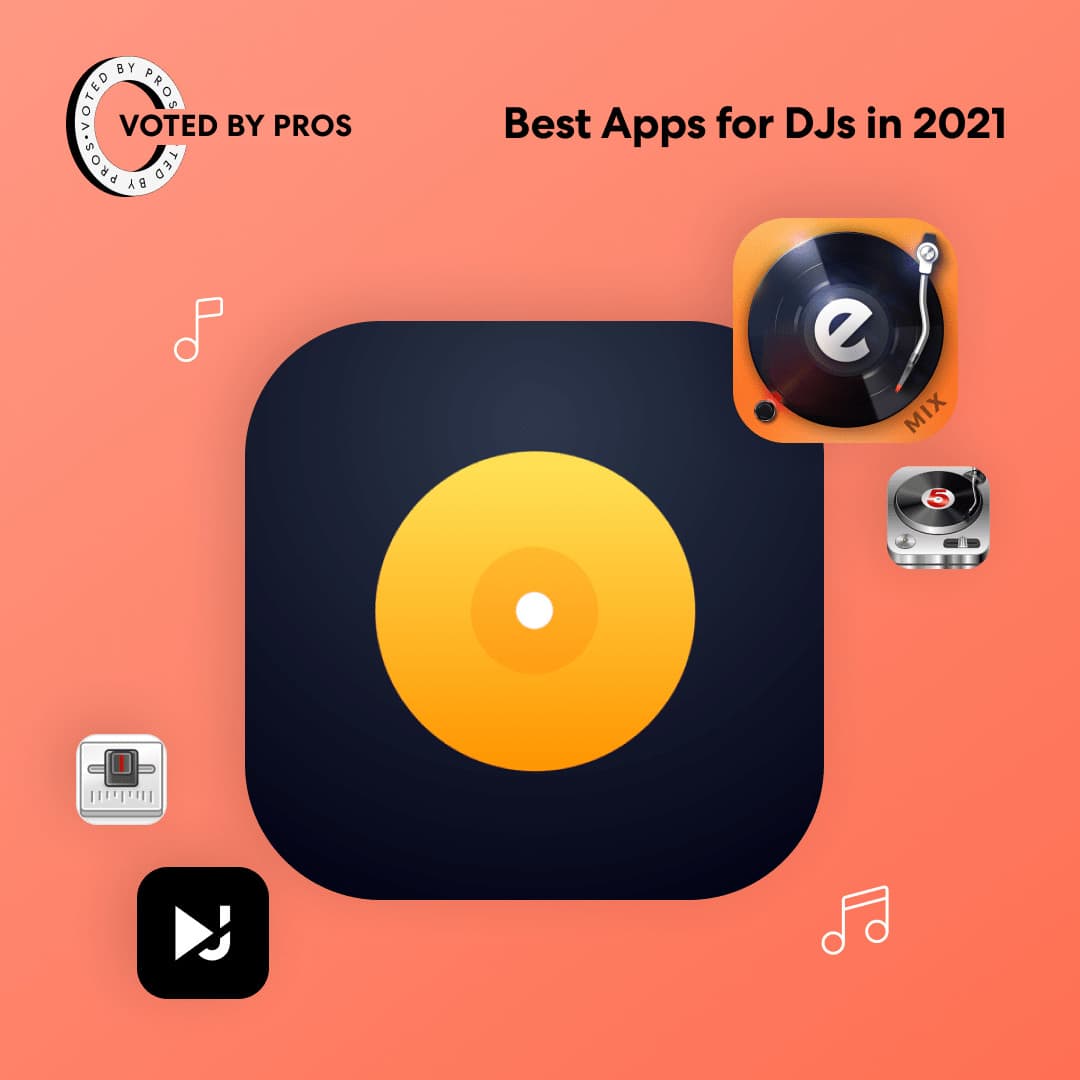So, you’re a DJ? A music fanatic. From 60’s psych-rock to 90’s dance synth—Daft Punk, Michael Jackson, Biggie Smalls—you love it all. Or you love one specific part of it, which is why you want to become a DJ. Your calendar isn’t marked by the seasons, but by the weekend gigs and the small event sets that you’re able to book. But you don’t just go to shows; you throw your own. You don’t solely listen to music; you craft it yourself. And now, you’ve decided to make a profession out of it. Congrats, you’re getting in at a good time.
Thanks to the explosion of the electronic music scene, the opportunities for a DJ/producer have never been more enticingly lucrative. Though, if you envision something a little less wild than playing dance music at a club or festival, you can also make a killing by being a wedding DJ. Not to mention they make some happy couple’s night extra special. That said, setting up a DJ career isn’t an easy path. There are matters to consider and things to do before you start mixing a track on your laptop, turntables spin, and the dancing begins.
Want to know how to become a professional DJ?
Read on.
How to become a DJ
To begin, let’s make two assumptions.
First, you’ve already invested money in obtaining the tools of the trade. This includes the whole DJ setup, the software, the turntables, the headphones—everything. It’s hard to be a pro DJ mixer if you don’t have an instrument to play.
Secondly, you’re an expert-level DJ. You can check off all of the audio mixing classes and electronics tutorials. You know Ableton like the back of your hand.
You’ve passed the beginner stage of DJing through hard work on your music skills and have reached the first fork in the road towards becoming a professional DJ. It’s time to choose your path.
Discover your sound and choose your path
These days, a professional DJ has the opportunity to make a fair bit of money. Naturally, this has intrigued many people who might never have considered this route before. As a result, there’s more competition in the music scene than ever before. So, to stand out in the crowd, you need to learn and know what you’re selling.
Have you defined who you’ll be as a DJ? A wedding DJ, a radio station DJ, a virtual DJ, an electronic music DJ, etc.? Do you know your unique value proposition that sets you apart from like-minded people?
Whether you want to play music festivals or spin at parties, it’s important that you are able to describe your musical style and encapsulate it in an elevator pitch. The early days of the business are filled with interviews, and, often, people are looking for a reason to say no. If they can’t understand your music and vibe in under thirty seconds, you could lose them.
If you haven’t yet reached this point, you will have the chance to do it as you build out your marketing plan.
Consider your marketing plan
In an industry crowded with different types of software, hardware, and musicians, the reality is that there is no right way to become a DJ. In fact, it’s the opposite—for this part of the journey, persistence and patience are your biggest weapons.
With that in mind, your next task is to create a marketing plan. A well-thought-out and pointed strategy will boost your brand and create more opportunities for gigs. So, be sure to complete the following:
Take the time to reach out to your network. Do you know anyone who has tried to become a DJ? How about someone that currently works as one? If you don’t already, it’s important to go on shows and meet promoters, managers, and owners. They could be your most vital contacts.
Build out your website, especially if you’re leaning towards the DJ for hire route. It should have your music available to see and play right then and there. The site needs to include all the relevant information about what music platforms you’re on, what venues you’re playing, and link to all of your social media.
If you’ve got a budget for it, it may be worthwhile to invest in traditional advertising or Google AdWords to increase clicks and site traffic. Otherwise, there are several job service sites worth posting on.
Social media is an incredibly powerful medium for artists. It’s essential that you take the time to build a social media following, particularly by demonstrating what you do. Regularly post clips from shows on Instagram. When you’ve got a new track or remixed another, throw it up on YouTube, post it on Reddit—shout it to the world.
While being a DJ is an inherently creative job (not to mention exciting), there are legal and business-related affairs you need to take care of so you can focus solely on what you do best: spin tracks and energize rooms.
This starts with registering the business.
Make it a legitimate DJing business
You plan on making money, and lots of it, right? Well, lucky for you, the government is going to want a chunk of your earnings. This means you have to file all the appropriate documents and make sure your DJ business is legitimate.
To register your business, you must apply for a business license in your state. In order to do so, you’ll need to first decide your legal business structure for both liability and tax purposes.
Your options include:
- Corporations S
- Corporations LLC
- Sole proprietorships
Reach out to a trusted CPA for consultation to identify which is the wisest route to take. Once completed, you’ll have to apply for an Employer Identity Number (EIN), which acts as the business’ Social Security Number and will help the taxman identify you.
Now that the business items on the agenda are finished, it’s time to talk about liability and potential pitfalls of the profession.
Get Thimble’s DJ Insurance
Before you ever play music at a show, throw a paid party, or DJ a wedding, it’s essential that you’ve got insurance coverage. Going to an event without an insurance policy, particularly one that has dozens if not hundreds of people in attendance—many of whom are buzzing on more than the music—would be like showing up to a set without your equipment.
With the sheer amount of people involved, it’s all too possible that something goes wrong. Say a showgoer trips on your equipment and falls—that’s a potential bodily injury suit. Or if you spilled a drink on the wedding venue’s equipment, you could be sued for property damage. Do you want to be on the line for tens of thousands in damages, not to mention the exorbitantly high legal fees? If you had a general liability insurance and professional liability insurance policy for DJs, you’d be protected.
In the past, a problem that many DJs encountered was that purchasing a business insurance policy was prohibitively expensive, particularly since they only played a few shows but were paying for daily coverage. In a sense, they were paying for more than they needed.
A DJ insurance policy made for you
Thimble’s innovative short-term insurance plans are made for people who need fast and affordable insurance coverage on-demand. They offer DJ insurance policies by the hour, day, or month. Within seconds, you can go from no policy to being covered by Thimble. Just sign up on the website or Thimble app, get your free quote, and purchase a plan.
You’ll have your Certificates of Insurance (COI) immediately.
Light the room on fire, not your business
As a DJ, your heart lies in the creative. The music you string together can turn a stagnant crowd into a bumping party. It’s every DJs dream to live the underdog story. To start small and work their way up to Coachella’s mainstage.
Start off your career on the right note, by:
- Discovering your sound
- Creating your marketing strategy
- Securing legitimate DJ business insurance
- Mitigating your risk to exposure
- Remembering to have fun
Finally, as the old adage goes: Luck favors those who work hard and are well prepared.








